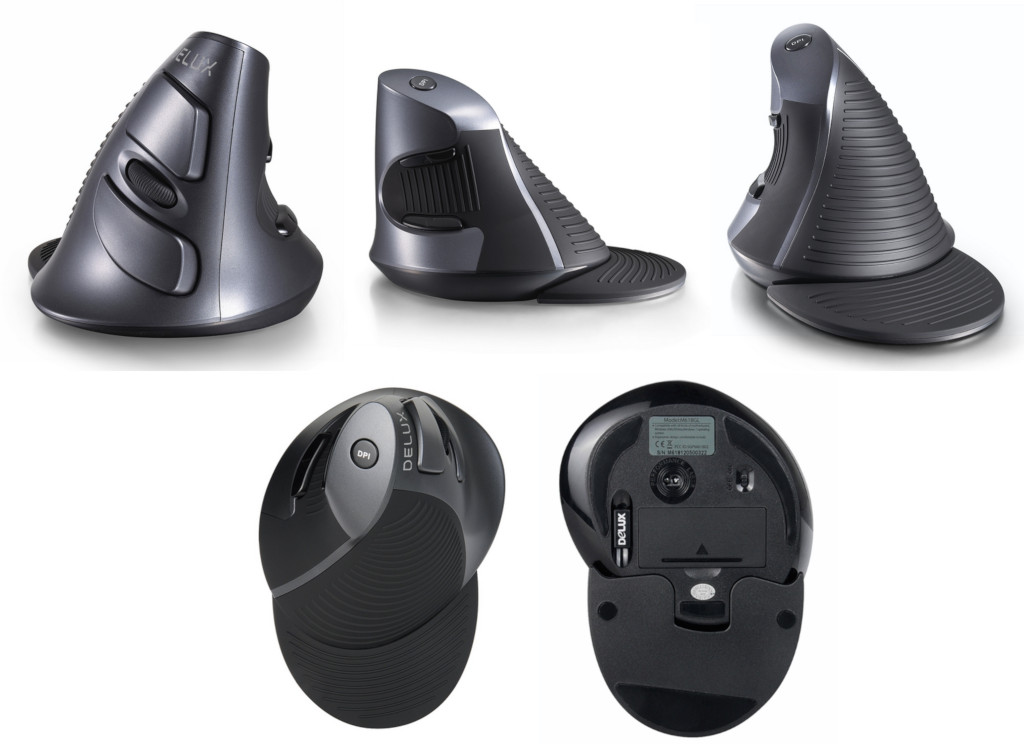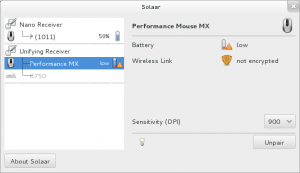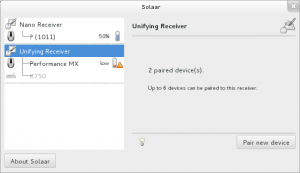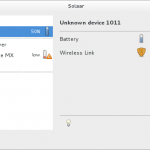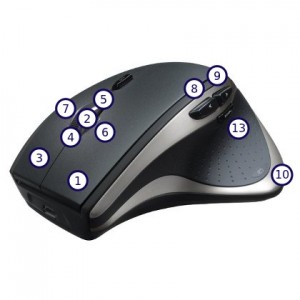The Delux M618 or M618GX ergonomic vertical mouse is a very simple, comfortable yet affordable wireless device that just works with GNU/Linux (I used Debian and Ubuntu), as expected.
While improving my work-at-home setup I upgraded to an ergonomic vertical mouse following a recommendation from a colleague that specializes in office ergonomics.
It’s taken a couple of weeks to adjust to it but I love it ! I am considering buying another to bring with me when leaving home and working elsewhere. Even if it’s a bit bigger than a regular mouse, I think it’s worth it.
The battery life is good (still running after 3 months), the small USB receiver is not compatible with anything else but that was expected. It’s sitting permanently on a KVM to be shared with other systems so I don’t mind.
Features :
- Special curve backside, thumb groove, delicate buttons layout and anti-skid rubber coasting
- 2.4 GHz wireless connectivity
- On/Off button, 2 AAA batteries required
- 6 Buttons, including a button to adjust DPI (800/1000/1600)
- Removable Wrist Rest
This mouse is also sold under the J-Tech Digital scroll endurance brand.
Button mapping
There’s nothing special to do regarding buttton mapping. Here is the detailed information about each button functionality as expected in Windows – it matches the behavior in GNU/Linux (I use Debian and Ubuntu) :

Related links
- Delux M618GX ergonomic vertical mouse product page
- Delux M618GX ergonomic vertical mouse user manual
